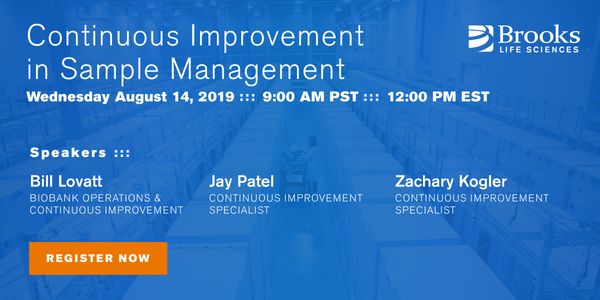Drug Discovery
Drug Discovery: drug discovery is the process by which new candidate medications are discovered. Historically, drugs were discovered through identifying the active ingredient from traditional remedies or by serendipitous discovery. Modern drug discovery involves the identification of screening hits, medicinal chemistry and optimization of those hits to increase the affinity, selectivity (to reduce the potential of side effects), efficacy/potency, metabolic stability (to increase the half-life), and oral bioavailability.
-
SEP 17, 2019 | 6:00 AMDATE: September 17, 2019TIME: 6:00 am PDT, 9:00am EDT, 2:00pm BST, 3:00pm CEST Abstract: Learning Objectives: one two Webina...The emergence and spread of antimicrobial-resistant (AMR) bacteria and resistance mechanisms pose a serious challenge to laboratories in both hospital clinical microbiology and public health...Speaker: Jonathan Jacobs, PhD
Background: The vast majority of all genes are contained within the genomes of the prokaryotes, including the eubacteria and the archaea. These largely single-cellular domains of life thus...
Speaker:
Garth Ehrlich, PhD, FAAAS
MVRSION is a bench and informatic system which employs simultaneous weighted analysis eight of nine 16S hyper variable regions. We use Fluidigm Juno to amplify and index the these regions in...
AUG 29, 2019 | 9:00 AM
DATE: August 29, 2019TIME: 9:00am PT/ 12:00pm ET Monoclonal antibodies (mAbs) are a cornerstone of modern biomedical research and biotherapeutics. Therefore, reproducibly obtai...
AUG 15, 2019 | 9:00 AM
DATE: August 15, 2019TIME: 9:00am PDT, 12:00pm EDT Radiation therapy is a critical tool for the treatment of brain tumors, however, exposure to high doses of ionizing radiation...
AUG 14, 2019 | 9:00 AM
DATE: August 14, 2019TIME: 9:00am PT. 12:00pm ET Implementation of Lean Methodology in Biobanking Operations to standardize sample management processes is effective. Each proce...
JUL 31, 2019 | 9:00 AM
DATE: July 31, 2019TIME: 9:00am PT, 12:00pm ET The choroid plexus, which makes up the blood-cerebrospinal fluid barrier in the central nervous system (CNS), lines the ventricle...
JUL 30, 2019 | 6:00 AM
DATE: July 30, 2019TIME: 6:00am PT, 9:00am ET The current version of the EMA Guideline for the environmental risk assessment of human drugs was published in 2006. This guidance...
JUN 27, 2019 | 9:00 AM
DATE: June 27, 2019TIME: 9:00am PDT, 12:00pm EDT At present cancer research focuses on three major areas viz. cancer diagnostics, drugs development, and next-generation therapi...
Tumor heterogeneity is a hallmark of cancer and can have significant impact on identifying drivers, including those that may be therapeutically relevant. Although, the traditional sequencing...
Implementing precision genomic medicine in the pediatric acute care setting has several challenges. First, the diagnosis must be made quickly. Second, the determination of pathogenicity mus...
The practice of precision medicine utilizes advanced diagnostic tools to identify specific groups of patients on the basis of particular molecular characteristics, and guide their treatment w...
Speaker:
David Hout, PhD
, Benjamin Chaffey, PhD
The long term goal of our collaborative effort is to bring precision medicine to the practice of veterinary oncology, using the wealth of genomic data gathered in human cancers as a roadmap....
Speaker:
Duane Hassane, PhD
, Guannan Wang, PhD
Clopidogrel, an antiplatelet agent frequently used for secondary stroke prevention, is a prodrug that requires both sufficient intestinal absorption and hepatic modification to produce its ac...
























